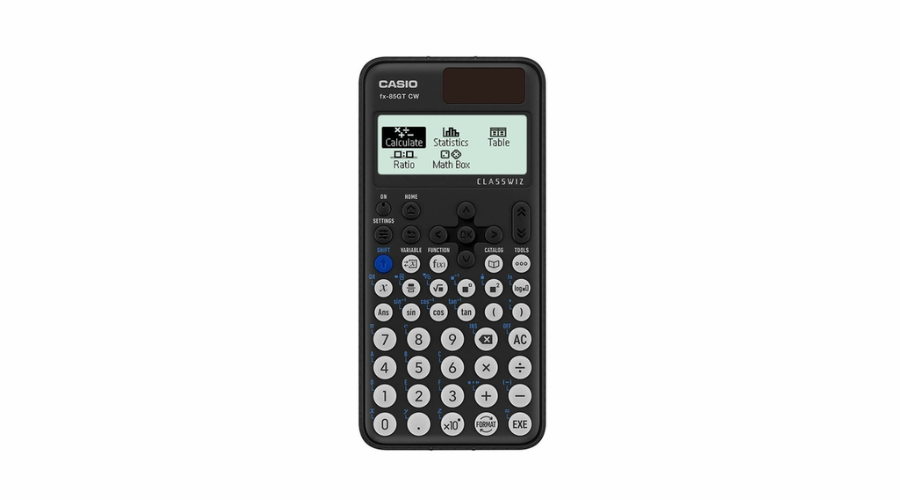A scientific calculator is a special tool that goes beyond basic calculations, helping with complex math and science tasks. It’s essential for students, scientists, and professionals as it simplifies intricate calculations, making it an essential companion for those engaged in disciplines where precision and efficiency are paramount.
Functions and Features to look for in a Scientific Calculator
1. Basic Arithmetic Functions
Ensure the calculator performs fundamental operations like addition, subtraction, multiplication, and division with ease and accuracy.
2. Trigonometric Functions
Look for functions such as sine, cosine, tangent, and their inverses to handle trigonometric calculations common in geometry and physics.
3. Logarithmic and Exponential Functions
Check for the ability to calculate logarithms, exponents, and their inverses, crucial for solving equations and exponential growth problems.
4. Algebraic Functions
Ensure the calculator can handle algebraic expressions, solve equations, and perform variable manipulations to assist in algebra coursework.
5. Programming and Equation Solving
For more advanced users, features like programming capabilities and equation-solving functionalities can be valuable for custom applications.
6. Graphing Capabilities
If graphing is necessary, choose a calculator with graphing capabilities, enabling you to plot functions and visualise mathematical concepts.
7. Memory and Storage Functions
Confirm the calculator allows for storing variables and has a reliable memory and recall system for efficient calculations.
8. Statistical Functions
Look for statistical features like mean, median, mode, standard deviation, and regression analysis for data analysis in statistics classes
9. Unit Conversions
Some calculators offer unit conversion capabilities, allowing you to switch between different measurement units easily.
10. Coordinate Geometry Functions
If you’re dealing with coordinate geometry, check for features such as the distance formula, midpoint formula, and slope calculations.
Practical Applications
1. Mathematics Education
Facilitating complex calculations and problem-solving for students in algebra, calculus, geometry, and other math courses.
2. Physics
Performing calculations related to kinematics, dynamics, energy, and other physics concepts, including unit conversions and solving equations.
3. Engineering
Assisting engineers in design calculations, analysing data, and solving equations relevant to their projects.
4. Chemistry
Handling stoichiometry, balancing chemical equations, and computing concentrations or reaction rates in chemistry experiments.
5. Statistics
Conducting statistical analysis, including mean, median, mode, standard deviation, and regression analysis for data interpretation.
6. Computer Science
Writing and testing simple programs, performing binary, hexadecimal, and octal conversions, and solving logic and algorithmic problems.
7. Finance
Calculating interest rates, loan payments, and other financial metrics in personal finance or business applications.
8. Environmental Science
Analysing data related to environmental studies, including pollution levels, climate data, and ecological measurements.
9. Astronomy
Performing calculations related to celestial mechanics, orbital dynamics, and astronomical observations.
10. Biology
Supporting biological research by assisting in calculations related to genetics, population growth, and experimental data analysis.
Which Scientific Calculators to Buy?
1. CASIO FX-85GT CW Scientific Calculator- Black

Priced at £19.99, the Black CASIO FX-85 GT CW Scientific Calculator is WHSmith’s top pick for GCSEs. It’s the upgraded version of the FX-85GT X, featuring a high-definition display and improved navigation. Approved for exams in Key Stages 3 & 4, it includes 276+ functions, a clip-on protective cover, and comes with dual power options. Recommended for various academic levels, it’s backed by a CASIO 3-year guarantee and recognized as the UK’s No.1 calculator brand.
2. WHSmith Scientific Calculator- Black

The WHSmith Black Scientific Calculator is a practical and budget-friendly choice, especially suitable for National Curriculum Levels 3 and 4. Packed with over 224 features, including 9 memories, replay and answer, fractions, trigonometrics, and more, this calculator is recommended for KS 3 and 4, approved for exams, and user-friendly for teenagers. It comes with a 12-digit 2-line display, protective hard case, and flip stand, and is WHSmith’s best budget buy at £12.99. The calculator operates on 1 x CR2025 battery.
3. CASIO FX-83GT CW Scientific Calculator- Pink

Available for £18.99, the CASIO FX-83GT CW Pink Scientific Calculator is recommended by WHSmith for GCSEs. An upgraded version of the CASIO FX-83GT X, it’s approved for all UK exams, suitable for Key Stages 3 & 4 students. With a high-definition display, improved navigation, and 290+ functions, it comes with a 3-year guarantee, clip-on cover, and operates on AAA batteries. Suitable for ages 11 and above, it’s the UK’s No.1 calculator brand, a reliable choice for various academic levels.
4. CASIO FX-991 CW Scientific Calculator- Black
The Black CASIO FX-991 CW Scientific Calculator is an upgraded version of the FX-991 EX, ideal for secondary school students studying maths and science. With 276 functions, it’s easy for teenagers to use and approved for Key Stages 3, 4, and 5. Priced at £36.99, it features a high-definition display, and improved menu navigation, and is suitable for advanced GCSEs, A/AS levels, and Highers. The calculator is known for simplicity, intuitive navigation, and compatibility with the free CASIO ClassWiz Calculator App.
Conclusion
In summary, a scientific calculator is crucial for diverse mathematical and scientific tasks. Choosing to buy from WHSmith provides reliability and assurance, with their endorsement of products like the CASIO FX-83GT CW or CASIO FX-991 CW models. The upgraded features and a 3-year guarantee make it a trustworthy choice for academic needs. For more information, visit Savewithnerds.








